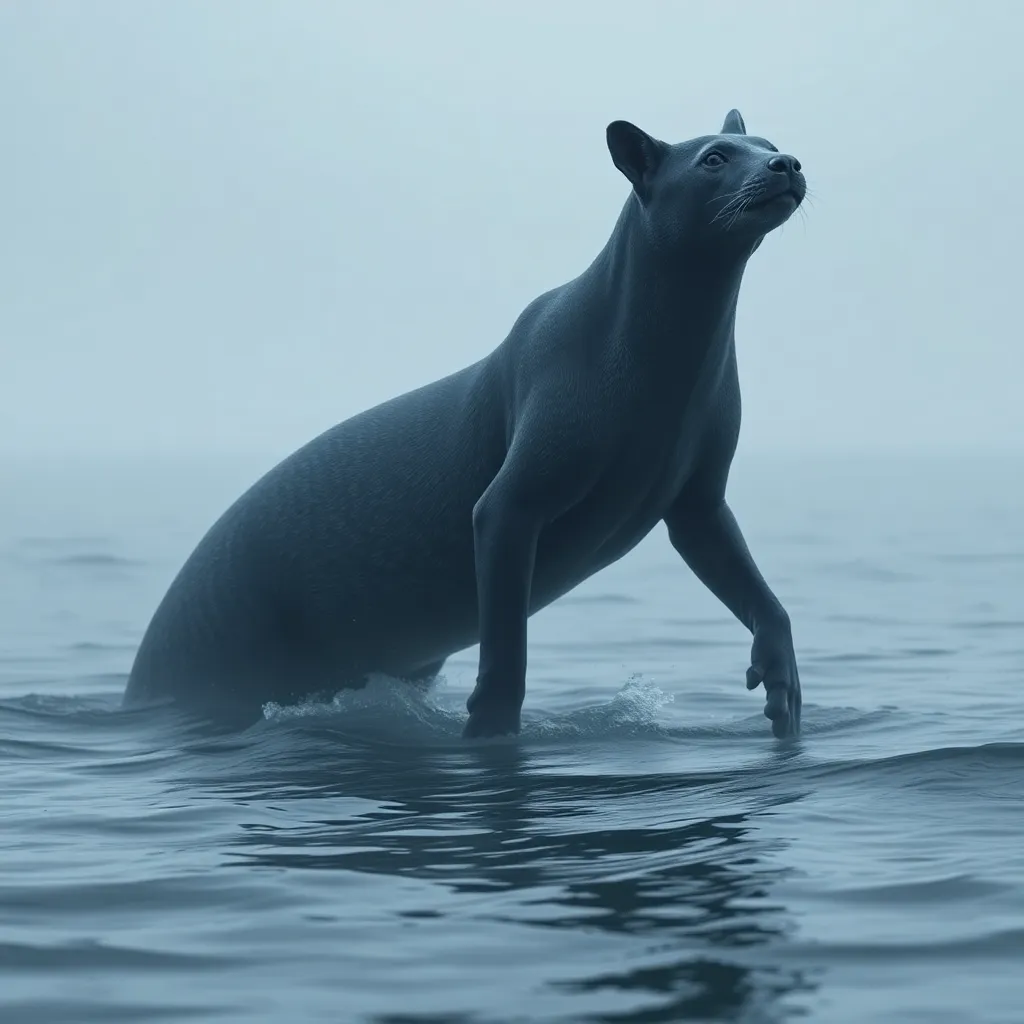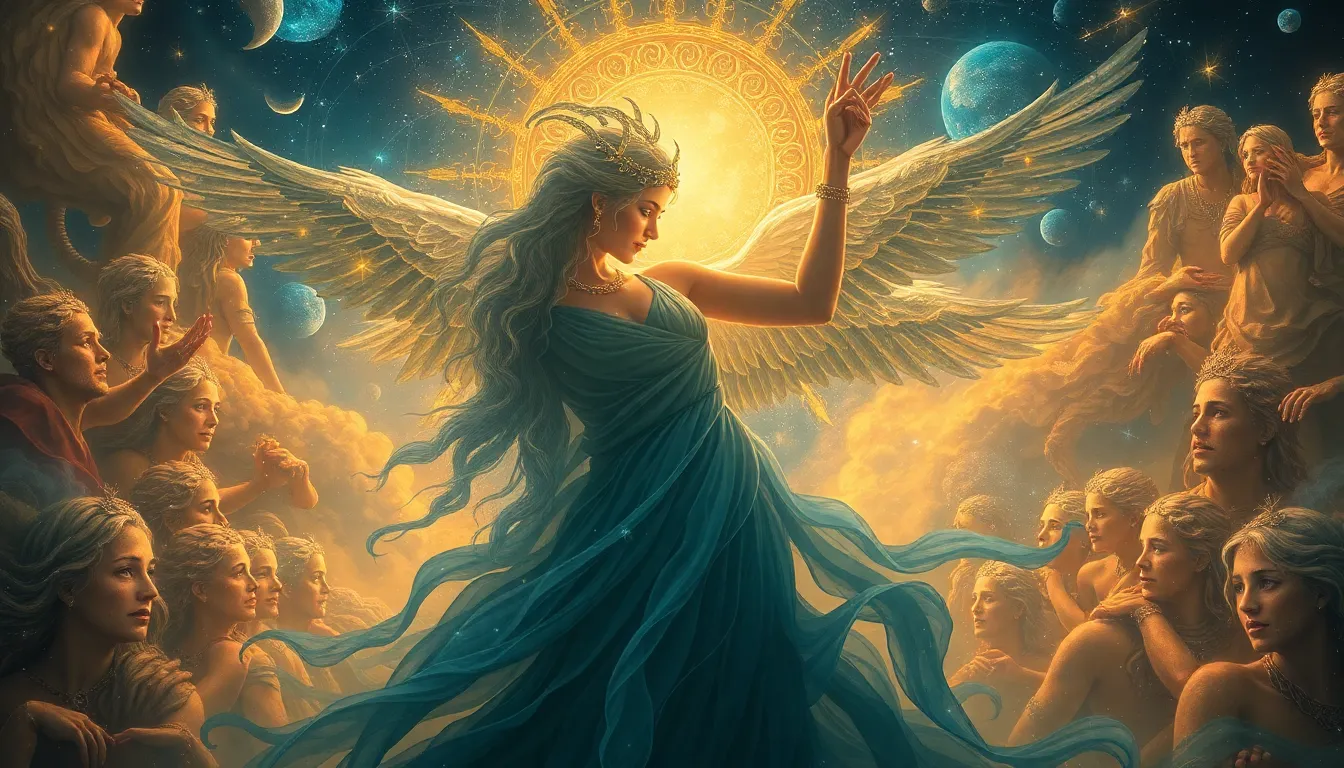The Curse of the Yuki-onna: Tales of Ice and Deceit
I. Introduction to Yuki-onna
The Yuki-onna, often translated as “Snow Woman,” is a captivating figure in Japanese folklore, embodying the beauty and terror of winter. She is typically depicted as a pale, ethereal woman dressed in white, her presence evoking both fascination and dread. The origins of the Yuki-onna can be traced back to ancient Japanese legends, where she was believed to be a spirit born from the cold and snow.
Culturally, the Yuki-onna holds a significant place in Japanese mythology, representing the delicate balance between life and death, warmth and cold. Her tales often revolve around themes of love, betrayal, and the consequences of human actions, making her a compelling character whose stories resonate deeply with the human experience.
This article delves into the legend of the Yuki-onna, exploring her various encounters, the duality of her character, the curse associated with her, and her impact on modern culture.
II. The Legend of Yuki-onna
The legend of the Yuki-onna has numerous historical accounts and variations, often differing from region to region. In some tales, she is portrayed as a vengeful spirit, while in others, she possesses a more benevolent nature. Commonly, she is said to appear during snowstorms, mesmerizing travelers with her beauty only to lead them to their demise.
Key characteristics of the Yuki-onna include:
- Her striking beauty, often described as otherworldly.
- A ghostly appearance, with skin as pale as snow.
- The ability to freeze her victims with a mere touch.
- Her association with snow and ice, reflecting both purity and danger.
The symbolism of snow and ice in her stories is profound. Snow represents both tranquility and isolation, while ice embodies coldness and emotional detachment. The Yuki-onna serves as a personification of these elements, illustrating the dual nature of beauty and peril.
III. Encounters with the Yuki-onna
Throughout folklore, there are notable tales of encounters with the Yuki-onna. In one famous story, a woodcutter named Minokichi meets the Yuki-onna on a snowy night. Struck by her beauty, he is captivated but ultimately escapes her icy grasp. However, he later betrays her by marrying another woman, leading to tragic consequences.
The nature of her interactions with humans often revolves around seduction and betrayal. Many tales depict her as initially enchanting, drawing individuals in with her allure, only to reveal her deadly nature when they least expect it. Themes of seduction are prevalent, as her beauty often leads men into danger, reflecting the complexities of desire and deception.
IV. The Dual Nature of Yuki-onna
The Yuki-onna embodies a duality that is central to her character. In some tales, she is portrayed as benevolent, protecting those who are lost in the snow or assisting the needy. For instance, she might spare a traveler if they show kindness or respect towards her. This aspect highlights her role as a guardian of life amidst the harshness of winter.
Conversely, the Yuki-onna also has a vengeful and malevolent side. Those who wrong her or betray her trust often face dire consequences. This duality illustrates her complexity as a character who can be both a protector and a predator, reflecting the multifaceted nature of human emotions and relationships.
V. The Curse of the Yuki-onna
The curse associated with the Yuki-onna is a chilling aspect of her legend. Those who encounter her are often said to face dire consequences, ranging from death to eternal wandering in the snow. The curse serves as a warning against betrayal and the consequences of unfaithfulness.
The impact of the curse can extend beyond the individual, affecting entire communities. Villages that fail to honor the Yuki-onna or disrespect her tales often find themselves plagued by harsh winters or misfortunes, reinforcing the importance of respect in folklore.
VI. Thematic Analysis: Ice and Deceit
Exploring the themes of coldness and emotional detachment reveals much about the Yuki-onna’s nature. Her icy demeanor often reflects a deeper emotional state, one that is disconnected from warmth and human connection. This coldness can symbolize the dangers of emotional isolation and the consequences of neglecting relationships.
The idea of deception in relationships is another significant theme. The Yuki-onna often embodies the notion that appearances can be deceiving; her beauty lures victims into a false sense of security, only for them to discover her true nature too late. This aspect of her legend mirrors modern interpretations of love and loss, highlighting the complexities of human connections.
VII. Yuki-onna in Popular Culture
The Yuki-onna has inspired numerous adaptations in literature, film, and art, becoming a symbol of the haunting beauty of winter. In contemporary storytelling, her character is often reinterpreted, reflecting modern themes of feminism and empowerment. For example, films may portray her as a misunderstood figure rather than merely a villain.
Her influence extends to various forms of media, including:
- Literature, where she appears in short stories and novels.
- Films, particularly in the horror genre, showcasing her as a ghostly figure.
- Visual arts, where artists depict her haunting beauty through various mediums.
These reinterpretations have allowed the Yuki-onna to remain relevant in contemporary culture, evolving with the times while retaining her core essence.
VIII. Conclusion
Reflecting on the enduring legacy of the Yuki-onna, it is clear that her tales resonate with universal themes of love, betrayal, and the complexities of human relationships. As a figure shrouded in beauty and danger, she serves as a poignant reminder of the consequences of emotional detachment and the power of deception.
In today’s society, her stories remain relevant, offering insights into the human experience and the interplay between folklore and contemporary life. The Yuki-onna continues to captivate audiences, encouraging us to ponder the delicate balance between warmth and coldness, love and loss.



